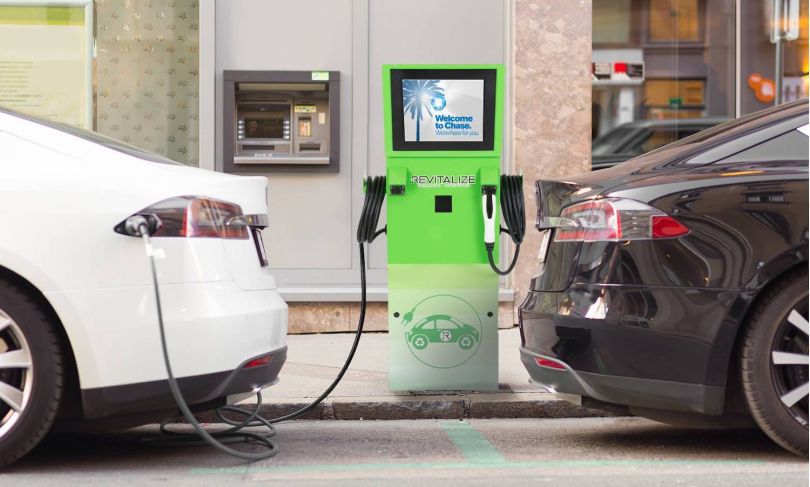Sure, the latest initiatives from the Teslas, Apples and Googles of the industry tend to dominate the tech news space — and with good reason. Still, the tech titans aren’t the only ones bringing innovation to the sector.
In an effort to highlight up-and-coming startups, Built In has launched The Future 5 across 11 major U.S. tech hubs. Each quarter, we will feature five tech startups, nonprofits or entrepreneurs in each of these hubs who just might be working on the next big thing. Read our round-up of Dallas’s rising startups from last quarter here.
* * *
The demand for electric vehicles (EVs) is on the rise and likely won’t slow down anytime soon. In fact, according to Bloomberg, 5 percent of new car sales in the U.S. are EVs — a tipping point indicating the start of mass adoption of EVs.
The EV industry is often faced with a unique challenge: How do drivers charge these vehicles and how can this service be made accessible to everyone? These were questions Fort Worth-based Revitalize Charging Solutions (RCS) CEO Edward Morgan asked himself in 2013 while watching a news segment about a problem charging Tesla vehicles.
“At that moment, a light bulb went on in my head, and it made sense that this was an excellent opportunity to do something great. So, I created RCS to tackle the infrastructure problem with EV charging,” he told Built In via email.
Founded in 2013, RCS is an original equipment manufacturer (OEM) that designs and builds EV charging stations. The company aims to reduce carbon emissions and help consumers transition to clean energy solutions by providing adequate access to EV charging stations.
To do this, RCS’s app and website offer a locator service showing where drivers can find charging stations — ones created by RCS and other companies — along their route. This helps drivers safely get from point A to point B, Morgan said.

RCS offers residential and commercial solutions. Its commercial solution is a dual port station that can charge two cars at once. The station also has a large screen used for advertising purposes.
Future plans for RCS include expanding into different market segments and delivering next-generation products and services to fleet applications, homes and businesses, Morgan said.
The company also plans to grow its team. In the next few quarters, RCS intends to hire five to 10 people, including software developers, field engineers and project managers.
“The adoption of electric vehicles and commitments from most OEMs will drive the need for more charging equipment to keep cars on the road,” Morgan said. “Because of this growth, charging infrastructure requirements will increase to handle the demand for new vehicles on the road, thus increasing opportunities for companies in this market to scale and grow faster.”




